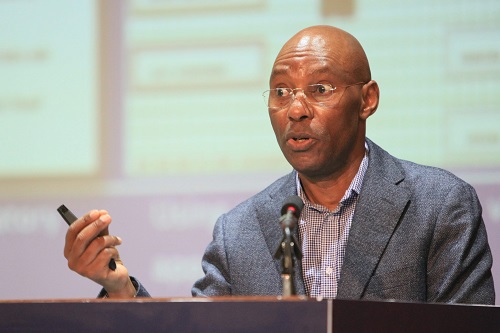The Rural Communications Development Fund (RCDF), a service fund that was rolled out in 2013 to ensure that underserved areas in Uganda get access to communications services that are comparable to those in the served areas, has been “hailed as the best in Africa”.
This was during the eLearning Africa 2018 conference that took place from 26 – 28 September in Kigali, Rwanda.
Serving as a pan-African platform, the eLearning Africa conference brings together high-level policymakers and practitioners from education, business and government to enhance their knowledge and establish partnerships.
The conference takes place in a different African country each year.
According to the Uganda Communications Commission (UCC), which manages the Fund, countries were impressed by the UCC-RCDF policy model and they have started applying “for benchmarking opportunities.”
#UPDATE#RCDF participates in the e-learning conference and exhibition in Kigali, Rwanda. The UCC-RCDF policy model is hailed as Best in Africa', participants apply for benchmarking opportunities.
— UCC (@UCC_Official) September 29, 2018
On rolling out the Fund, UCC authored a report, noting that Uganda’s communications sector was largely liberalized thus operators and service providers are free to choose the timing, extent, location, and nature of services they wish to offer the communities without any specific obligations exerted on them by the industry regulator.
The above meant that some areas would miss certain services that they were to be entitled to.
The RCDF was therefore set up to cater to the communities that are not ordinarily covered by the operators and service providers.
Nyombi Thembo, a former minister of state for Information and Communications Technology, ICT, was appointed to direct the Fund in 2017.
RDCF is funded from the annual two percent share of the total levy imposed on telecommunication and broadcasting companies UCC gets from the finance ministry. But it has also previously got support from other organizations like the World Bank and MTN.
According to UCC, the projects implemented by RCDF include; Internet Points of Presence (POP) – 76, internet cafes – 106, ICT training centers – 78, public payphones – 4,099, district web portals – 78, multi-purpose community telecentres (MCT) – 13, postal projects – 45.
Others are school ICT laboratories – 708, health ICT facilities – 174, voice network sites – 90, content development projects – 106, local governance projects 2, and other unique projects – 31.
This year, UCC announced that 15 selected schools were going to get a solar-powered computer lab with a 21-seating capacity.
#INFORMATION The Uganda Communications Commission under the Rural Communications Development Fund #RCDF has contracted SAMANGA ICT Energy to supply and install equipment for establishing ICT laboratories in 15 educational institutions. Details attached @ChimpReports @Pamankunda pic.twitter.com/31k4qvaehr
— UCC (@UCC_Official) May 22, 2018
Almost all #Govt aided # Secondary schools have #ComputerLabs fully equipped under @UCC_Official #RCDF program. In this pic is Mbale S.S comp lab. pic.twitter.com/9COAVcnJf1
— Pamela Ankunda (@Pamankunda) September 28, 2018
You know we would appreciate if you quoted the exact number of schools. Real statistics. Just saying. Thank you.
— Levine Akampa (@a_15levine) September 29, 2018
1034 govt aided secondary schools.
— Pamela Ankunda (@Pamankunda) September 29, 2018

